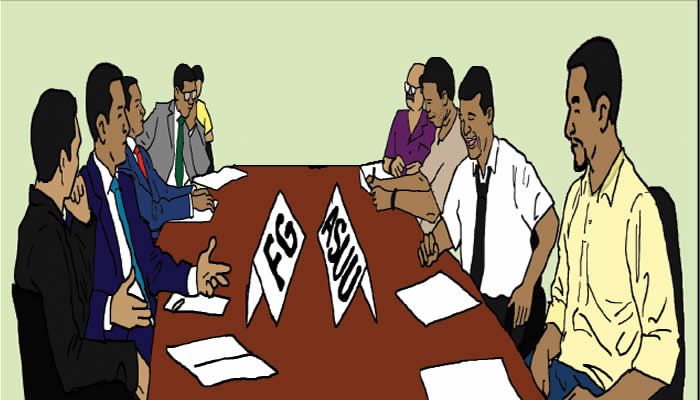
The National Vice Chairman (North-West) of the All Progressives Congress, Salihu Lukman, on Wednesday, said the judgement of the National Industrial Court ordering the Academic Staff Union of Universities to call off its ongoing nationwide strike had vindicated his position.
Lukman, who made the statement in Abuja on Wednesday, disclosed that the ruling has justified his position last year when the Nigeria Labour Congress’ national leadership organised a one-week warning strike against the Kaduna State government and National Association of Resident Doctors at the same time.
The PUNCH reported that ASUU has been on strike since February 14 to press home the demands for improved funding for universities, a review of salaries for lecturers, among other issues.
Several meetings between ASUU and the Federal Government had ended in deadlocks.
But the National Industrial Court, presided over by Justice Polycap Hamman, ruled that the strike was a breach of Section 18(1) of the Trade Dispute Act and accordingly ordered the academic union to call off the strike.
While noting that ASUU had allowed the strike to drag into its seventh month, the judge observed that the strike had caused irreparable damage to the careers of many students in Nigeria.
Hours after the judgement, the APC vice chairman expressed concerns that it took the nation about seven months to get the court to compel the union into doing the right thing.
He said, “The NIC judgement today is a vindication of the position I expressed last year when the NLC National leadership organised a so-called one-week warning strike against Kaduna State government and resident doctors at the same time.
“Sadly, here we are, the same judgement that would have been delivered before the strike commenced on February 14 is only obtained about seven months into the strike. Better late than never.
“However, the demand must be made clearly, never again should the Ministry of Labour abdicate from its responsibility of arresting strikes based on ability to activate processes of mediation, conciliation and compulsory adjudication. The Ministry of Labour must be reformed to discharge these functions effectively and efficiently.
“Democracy is about rule of law. At all times, laws must be activated to regulate conducts of citizens and government officials. Every step must be taken to enforce the judgement of Justice Polycap Hamman. The last seven months have been traumatic for parents and innocent students. Everything must be done to bring to immediate end the sufferings and hardships being inflicted by the seven months strike.”
Continuing, Lukman said, although under the law provision of dispute settlement was required to go through processes of mediation, conciliation and compulsory adjudication through the Industrial Arbitration Panel and National Industrial Court, the reality was the almost complete absence of any mechanism to negotiate resolution or, at least, implement agreement.
This was as he noted that the debate about whether government should pay ASUU members for the seven months they went on strike should be treated based on the provisions of their employment contract.
“Anything to the contrary will amount to encouraging ASUU, and by extension other unions, to engage processes of collective bargaining based on blackmail antics and show of crude power. This must be discouraged.
“If government will at all consider any payment, it should be to compute what ASUU members could have earned during the period and pay it to students as scholarship or some sorts of compensation for the irreparable damages to their careers occasioned by the strike,” he said.














